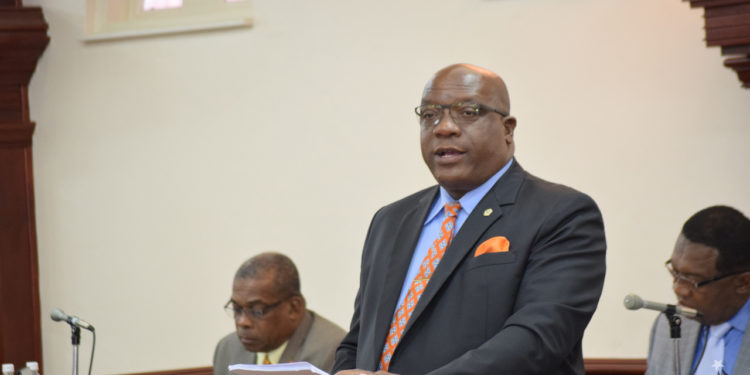BASSETERRE, ST. KITTS, DECEMBER 8TH, 2017 (PRESS SEC) – The Federation of St. Kitts and Nevis’ absence on the European Union’s recently published list of non-cooperative jurisdictions for tax purposes did not occur by accident, the country’s Prime Minister and Minister of Finance, Dr. the Honourable Timothy Harris, said Wednesday, December 6th, 2017 during his address to the nation on the 2018 budget.
Indeed, St. Kitts and Nevis not appearing on the list, which is being referred to in the international media as “the European Union’s first blacklist of tax havens,” is credit to his Government’s sustained proactive cooperation on tax matters.
“That didn’t happen by accident,” Prime Minister Harris said. “I want to thank the professional staff in the Ministries of Finance and in Legal Affairs,” Dr. Harris added, while noting that they have “helped us to keep the legal framework in check.”
The Honourable Prime Minister went on to note that when his Team Unity Government brought “the suite of legislation to deal with being a responsible member of the international community, we heard noises elsewhere, which suggested that we were not doing the right thing, that we were just bringing legislation given by other countries.”
Prime Minister Harris then countered by saying, “We were protecting the integrity of the financial space of St. Kitts and Nevis, and that is why we passed the Common Reporting Standard (Automatic Exchange of Financial Account Information) Act, 2016.”
Dr. the Honourable Timothy Harris announced that, “In addition to the implementation of the Common Reporting Standard (CRS), the Federation is preparing for the next round of peer reviews by the OECD’s [Organisation for Economic Co-operation and Development’s] Global Forum…The peer review [of St. Kitts and Nevis] is expected to be officially launched later this month and will once again examine the Federation’s legal and regulatory framework for exchange of information that is requested for tax purposes and the effectiveness of exchanging such information in practice.”
The Global Forum on Transparency and Exchange of Information for Tax Purposes is the premier international body that works to ensure the implementation of the international standards on tax transparency. It currently has 147 member jurisdictions, which include St. Kitts and Nevis. Fifteen international organizations participate as observers. Member jurisdictions’ compliance is monitored via an in-depth peer review process that assesses the standard of exchange of information on request.
Phase 1 of the review process evaluates the quality of a jurisdiction’s legal and regulatory framework for the exchange of information, and Phase 2 assesses the practical implementation of that framework. Upon completion of both Phases, each jurisdiction is designated an overall rating.
The Global Forum completed its first round of peer reviews in 2016 and a second round of peer reviews is now underway. St. Kitts and Nevis’ Overall Phase 2 Rating is Largely Compliant based on the first round of reviews; this is also the case for the United Kingdom and the United States. Canada’s Overall Phase 2 Rating is Largely Compliant (as at May 2017) based on the second round of reviews.
On Thursday, August 25th, 2016, St. Kitts and Nevis’ Prime Minister signed the OECD’s Multilateral Convention on Mutual Administrative Assistance in Tax Matters at the OECD headquarters in Paris, France, further demonstrating to the international community the Federation’s commitment to implementing the international standards on transparency and exchange of information for tax purposes.
During the last Article Four (IV) Consultation held in St. Kitts and Nevis, International Monetary Fund (IMF) officials affirmed the progress that is continuously being achieved by Prime Minister Harris’ Government in strengthening the country’s anti-money laundering and anti-terrorist financing regime.
The IMF team, which visited St. Kitts and Nevis between April 18thand May 3rd, 2017, commended the Government of National Unity, saying: “The authorities have further improved compliance with international AML/CFT [anti-money laundering/combating the financing of terrorism] standards and exchange of information…”
This year, too, St. Kitts and Nevis joined the OECD’s Inclusive Framework on BEPS, which comprises more than 100 countries and jurisdictions that have come together to collaborate on the implementation of the OECD/G20 Base Erosion and Profit Shifting (BEPS) Package. It aims to tackle BEPS, which refers to tax avoidance strategies that involve artificially shifting profits to low- or no-tax locations.









